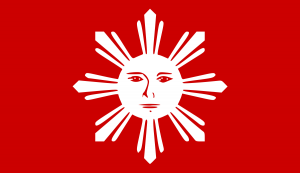Language/Tagalog/Vocabulary/Education
Hi Tagalog learners! 😊
In this lesson, we will focus on learning Tagalog vocabulary related to education. Education is an important aspect of Filipino culture, as it is seen as a way to achieve success and upliftment in life. We'll start with some basic terms and eventually move on to more complex concepts. Don't forget to practice and use these words in context to fully understand them. Here's our table of contents:
Take a moment to explore these relevant pages as you conclude this lesson: Education and Learning & Fruits.
Basic Vocabulary[edit | edit source]
Let's start with some basic Tagalog words that you might come across in your day-to-day life. These words are essential for building blocks of conversations and understanding complex concepts:
| Tagalog | Pronunciation | English |
|---|---|---|
| Pera | pe-ra | Money |
| Lapis | la-pis | Pencil |
| Papel | pa-pel | Paper |
| Aklat | ak-lat | Book |
| Sulat | su-lat | Letter |
| Guhit | gu-hit | Line |
Dialogue[edit | edit source]
- Person 1: May lapis ka ba? (Do you have a pencil?)
- Person 2: Oo, meron ako. (Yes, I have one.)
Classroom Objects[edit | edit source]
Next, let's focus on classroom objects. These are terms that you would specifically use in a classroom or an educational setting.
| Tagalog | Pronunciation | English |
|---|---|---|
| Pisara | pi-sa-ra | Blackboard |
| Karera | ka-re-ra | Chalk |
| Bumabagsak | bu-ma-bag-sak | Falling |
| Pundasyon | pun-da-syon | Foundation |
| Biyahe | bi-ya-he | Trip |
| Akmang | ak-mang | Ready |
Dialogue[edit | edit source]
- Person 1: Nasaan ang pisara? (Where is the blackboard?)
- Person 2: Nasa likod ng classroom. (It's at the back of the classroom.)
School Subjects[edit | edit source]
Moving on, let's learn some school subjects. These are the subjects that you would typically find in a school curriculum:
| Tagalog | Pronunciation | English |
|---|---|---|
| Matematika | ma-te-ma-ti-ka | Mathematics |
| Agham | a-gham | Science |
| Kasaysayan | ka-saysa-yan | History |
| Wakas-tanungan | wa-kas-ta-nu-gan | Culmination |
| Panitikan | pa-ni-ti-kan | Literature |
| Sining | si-ning | Art |
Dialogue[edit | edit source]
- Person 1: Ano ang paborito mong subject? (What is your favourite subject?)
- Person 2: Bihira ang paborito kong subject pero nag-eenjoy ako sa panitikan. (I don't have a favourite subject but I enjoy literature.)
Academic Degrees[edit | edit source]
Finally, let's learn some academic degrees in Tagalog. These are the degrees that you can earn after completing a certain level of education:
| Tagalog | Pronunciation | English |
|---|---|---|
| Batayang Edukasyon | ba-ta-ya-ng e-du-ka-syon | Elementary Education |
| Sekundaryang Edukasyon | se-kun-da-rya-ng e-du-ka-syon | Secondary Education |
| Lisensiyadong Gurong Pang-Elementarya | li-sen-sya-dong gu-rong pang e-le-men-ta-rya | Licensed Teacher for Elementary Education |
| Lisensiyadong Gurong Pang-Secondarya | li-sen-sya-dong gu-rong pang se-kun-da-rya | Licensed Teacher for Secondary Education |
| Kurso sa Kolehiyo | kur-so sa ko-le-hi-yo | College Course |
| Bachelor of Arts | ba-tche-lor ng ar-tes | Bachelor of Arts |
Dialogue[edit | edit source]
- Person 1: Anong kurso mo sa kolehiyo? (What's your college course?)
- Person 2: Political Science. (Political Science.)
Additional Resources[edit | edit source]
To improve your Tagalog Vocabulary, you can also use the Polyglot Club website. Find native speakers and ask them any questions!
Sources[edit | edit source]
- Learn Tagalog Language & Vocab on the App Store
- Tagalog - Definition, Meaning & Synonyms | Vocabulary.com
➡ If you have any questions, please ask them in the comments section below.
➡ Feel free to edit this wiki page if you think it can be improved. 😎
Other Lessons[edit | edit source]
- Geography
- Family
- Feelings and Emotions
- Say Yes
- How to Thank Someone
- Days of the Week
- How to say Good Bye?
- Health
- Drinks
- Food

